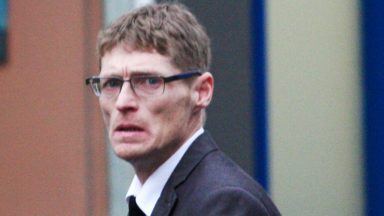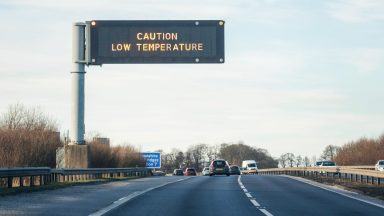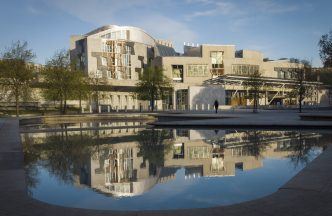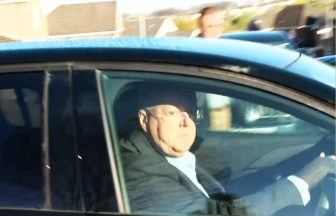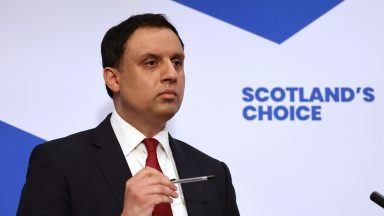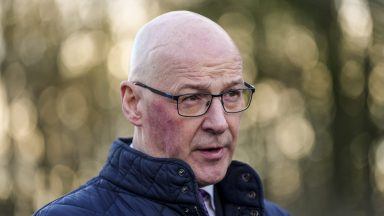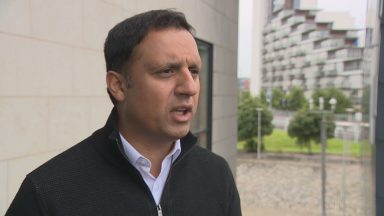The debate on Scotland’s future often feels a bit one-sided. I mean beyond the political parties.
There are all sorts of pro-independence groups; Women for Independence, the Scottish Independence Convention, the Radical Independence Campaign and many more.
Then there are the independence marches, with thousands of supporters taking to the street in high volume and visibility, but there is no-one marching for the Union.
Outside of internal party political debates (mainly in the Labour leadership) there is very little debate and discussion from the pro-UK side. So when These Islands announced its conference in Newcastle over the weekend I thought it was a great opportunity to find out a bit about what the Unionist side was thinking.
There was some debate on Twitter about whether I should be going to such a conference and whether STV should be giving it the oxygen of publicity. Tweeters asked if I was forced to go by evil unionist bosses? No. I went because the debate on Scotland’s future is not one-sided.
Dr Gerry Hassan was there as a panel member. I asked him if this was something pro-independence supporters should pay attention to. He said he was a bit nervous about appearing because it was outside his natural territory. “What this conference is acknowledging is that the Union is constantly changing and evolving. IF the UK became more democratic it would pose huge questions for the independence movement.”
But the 300-strong audience weren’t there to hear from the likes of him. They were there to hear some of the biggest names on their own side. The conference line-up reads like a “Who’s Who” of unionism. Opening with former Labour prime minister Gordon Brown and closing with former Conservative deputy prime minister Sir David Lidington. In between there were the likes of Fiona Hill, who was Theresa May’s adviser in Downing Street and seldom speaks in public, Eddie Barnes who recently quit as Ruth Davidson’s media adviser, Manchester mayor Andy Burnham and many other Conservative, Labour and Lib-Dem politicians past and present, academics and campaigners.
About 300 people turned up at Newcastle’s Discovery Museum. The make-up of the audience was widely commented on as predominantly male, getting on a bit and “ultra-unionist”.
Another question posed on Twitter was: “Why were they meeting in Newcastle? That’s not even in Scotland!” In his opening remarks conference organiser Kevin Hague said he “wanted to hear more English accents in the debate”. He went on to explain that he wanted to introduce the English regions to the constitutional debate on the future of the UK. He says it’s not just about Scottish independence.
That was the line Gordon Brown pursued. He proposed councils for the North, North-West and Midlands of England, giving more devolution to those areas, then bringing all the nations and regions of the UK together in a Senate. That is the latest draft of his federal ideal. He described five nationalisms within the UK – Brexit, Scottish, Welsh, Ulster and English.
Nationalism, he warned, was about us and them becoming us versus them. He said Scotland was one of the most divided countries in the world with the choice becoming more extreme all the time between no change at all and a harder version of independence than was on offer in 2014.
Then came Andy Burnham, who also argued for federalism and suggested an English regional form of the Barnett Formula. Scottish Lib Dem Leader Willie Rennie later argued for federalism too, saying “we’ve got sufficient powers in the Holyrood parliament already”. Federalism is not something the Tories like the idea of. Henry Hill of ConservativeHome told me “it’s the same politicians applying the same idea that hasn’t been working from a Unionist perspective for 20 years”.
The big elephant in the room seemed to be the prospect of a second independence referendum. I asked Gordon Brown about it in an interview after his speech. He didn’t like it – by that I mean the idea of me asking him about it. He was quite dismissive of it, saying there was no case for it. He had said earlier, in his speech, that he had supported a third option of more powers being put on the ballot paper in 2014. He felt that could have won about 80% of the vote. I asked him about it during the interview, pointing out I didn’t remember him saying anything about it at the time, unlike the STUC. He said it was a point he had made in private within the Labour party.
One astute conference-goer told me he was “petrified” of another independence referendum, but feared an SNP win at next year’s Holyrood election would make it inevitable. Conference organiser Kevin Hague agreed, so it might be a bigger part of the discussion if These Islands get together again.
Closing the conference on Friday, Professor Katy Shaw of Northumbria University updated the whole question: “If the UK was on Tinder would Scotland swipe right or left?”
You can see my report on Scotland Tonight at 10.40 pm on STV, or on the STV Player afterwards.









